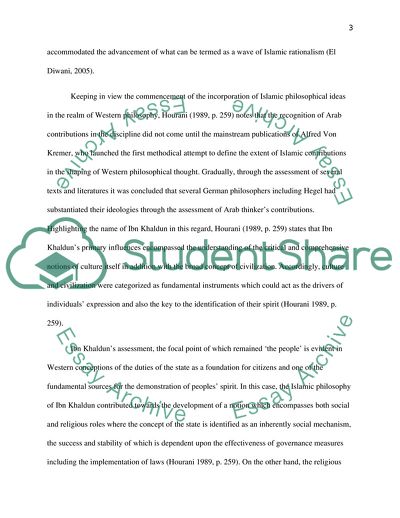Cite this document
(Islamic Philosophy Influence on Western Philosophy in 10th Century and Onwards Essay Example | Topics and Well Written Essays - 2500 words, n.d.)
Islamic Philosophy Influence on Western Philosophy in 10th Century and Onwards Essay Example | Topics and Well Written Essays - 2500 words. https://studentshare.org/philosophy/1821341-how-did-islamic-philosophy-influence-western-philosophy-in-10th-century-and-onwards
Islamic Philosophy Influence on Western Philosophy in 10th Century and Onwards Essay Example | Topics and Well Written Essays - 2500 words. https://studentshare.org/philosophy/1821341-how-did-islamic-philosophy-influence-western-philosophy-in-10th-century-and-onwards
(Islamic Philosophy Influence on Western Philosophy in 10th Century and Onwards Essay Example | Topics and Well Written Essays - 2500 Words)
Islamic Philosophy Influence on Western Philosophy in 10th Century and Onwards Essay Example | Topics and Well Written Essays - 2500 Words. https://studentshare.org/philosophy/1821341-how-did-islamic-philosophy-influence-western-philosophy-in-10th-century-and-onwards.
Islamic Philosophy Influence on Western Philosophy in 10th Century and Onwards Essay Example | Topics and Well Written Essays - 2500 Words. https://studentshare.org/philosophy/1821341-how-did-islamic-philosophy-influence-western-philosophy-in-10th-century-and-onwards.
“Islamic Philosophy Influence on Western Philosophy in 10th Century and Onwards Essay Example | Topics and Well Written Essays - 2500 Words”. https://studentshare.org/philosophy/1821341-how-did-islamic-philosophy-influence-western-philosophy-in-10th-century-and-onwards.


